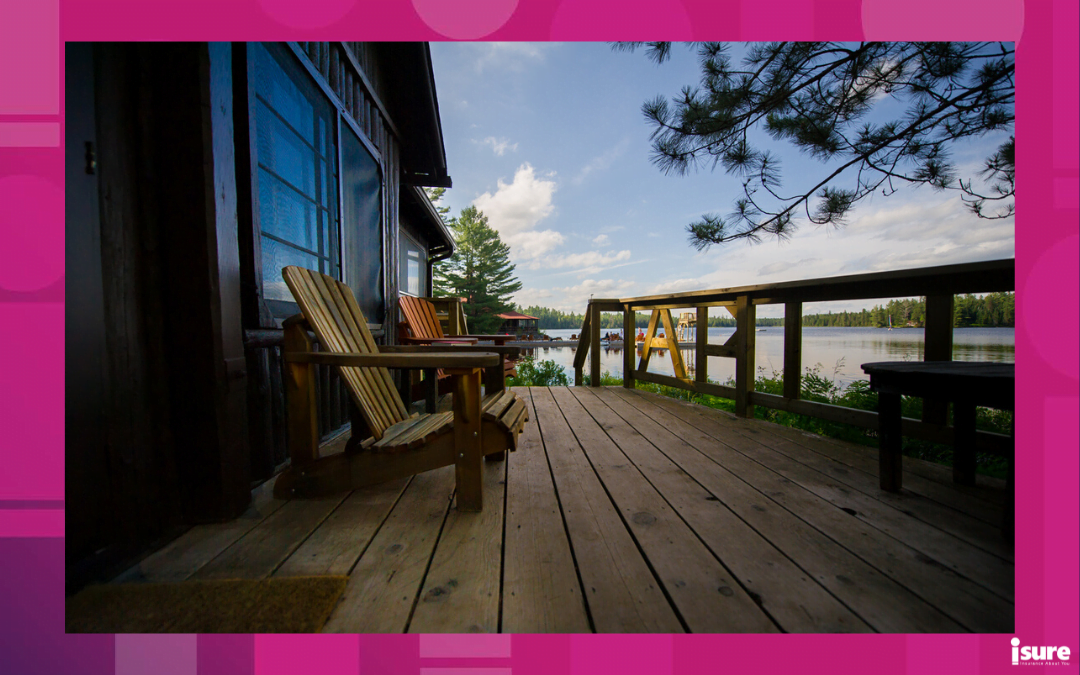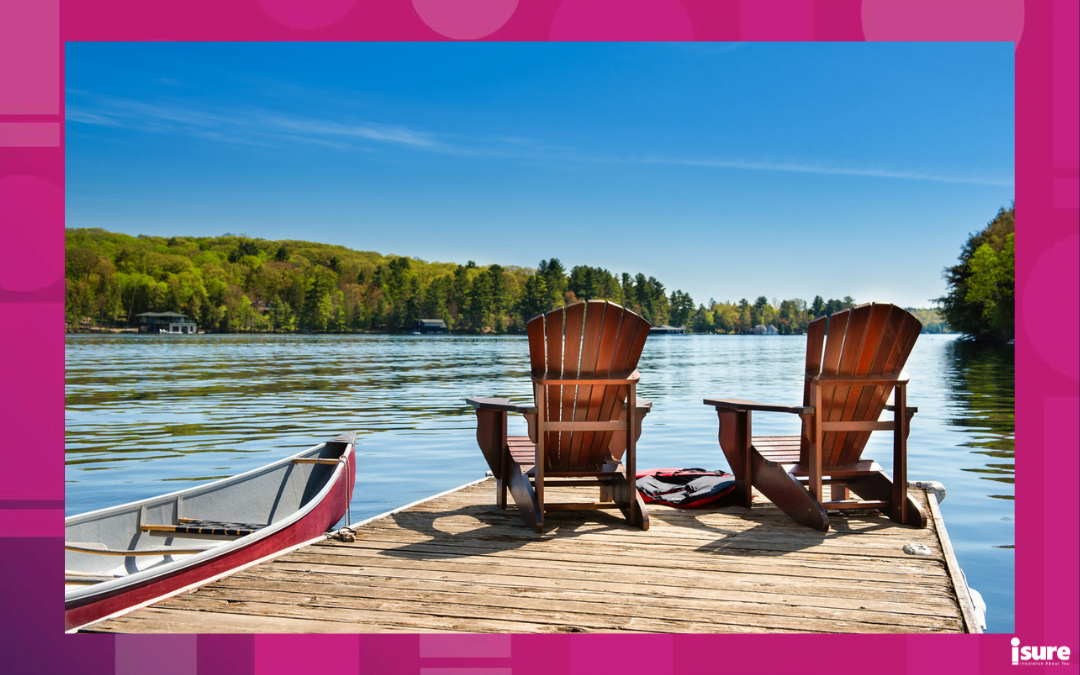There is nothing that says living in Ontario like the idea of “going to the cottage”. Whether it’s a lakeside retreat or a countryside property, it is part of the fabric of what it is to live in Ontario. These types of properties are also evolving from a summertime getaway into full-time homes and part-time rental properties. But insuring a seasonal property isn’t exactly the same as home insurance. So, what is cottage insurance exactly? Your insurance needs to be tailored to these seasonal structures, and in this article, we’ve gathered everything you need to know about cottage insurance.
What is cottage insurance?
Vacation property insurance, also described as cottage insurance, refers to a policy covering a property that is not your primary residence. This type of insurance shares some of the same features as primary home insurance, but cottage insurance will also include both property & contents, as well as liability insurance. It’s the best way to protect yourself and your recreational property from perils. Without the proper cottage insurance, you will have to pay for the costs of losses caused by circumstances such as fire, vandalism, or burglary, yourself.
Cottage insurance applies to the following dwellings: Cottages, lake houses, chalets, cabins, lodges, seasonal properties and vacation homes.
Who needs cottage insurance in Ontario?
Whether you bought the cottage on your own, with family members or friends, anyone with their name on the title of the property should be included on the cottage insurance policy. Be sure that each person on the property deed is also named on the cottage insurance policy.
Why should I buy Ontario cottage insurance?
Just like your primary home, your cottage needs protection. Seasonal homeowners should purchase cottage insurance to protect their investment. As an owner, you may only spend a limited amount of time there during the year. Cottage properties can face perils, such as vandalism and damages by wildlife, that you may not be aware of until your next visit or have someone else check on the property.
How much does Ontario cottage insurance cost?
The price of cottage insurance generally ranges from $800 to $3,000 annually. According to IBC.ca, insurers take into consideration:
- Location – proximity to hydrants or a fire station, as well as road access
- Size of the cottage
- Replacement cost(s)
- How frequently your property is used
- How often it is occupied (year-round or seasonally)
- If it’s rented to others
- Are contents kept on the premises?
- Security and monitoring systems
- Property features – Docks, shed, bunkies, garage
- Construction – Materials, age of roof, plumbing, electrical systems
If your cottage is large, featuring a lot of amenities, it will cost more to insure. If your cottage is small and simple, the cottage insurance will be less. It’s important to note that most insurance companies will consider insuring your cottage only if they insure your primary residence.
What does cottage insurance cover?
You can have your vacation property included in your primary home’s policy. This is known as seasonal or secondary property insurance. Bundling your coverage can help with added savings on your overall insurance costs. Additionally, you can choose a separate policy, however, many insurers will insist that you insure all properties with them. The items covered by your cottage insurance package depend largely on whether you purchase a comprehensive or broad form policy:
- Comprehensive cottage insurance covers your cottage building, outbuildings and contents for all risks, except those specifically excluded in the cottage insurance policy.
- Named Perils (Broad Form) insurance provides comprehensive coverage on the big-ticket items, such as the building itself and any named perils coverage on the contents.
Remember: Certain risks are more expensive to insure for a vacation property. The risk of theft is higher in cottage country because the property may be unoccupied for long periods of time, which raises the likelihood of a claim. Similarly, if a pipe bursts, it may cause more damage if the owner isn’t living there to prevent extensive water damage.
What is not covered under cottage insurance policies?
For cottage insurance policies, common exclusions include:
- Coverage of faulty workmanship
- Freezing pipes during the heated season
- Rust or corrosion from extreme temperatures
- Mould and water damage
- Wear-and-tear
- Damage caused by animals
- Septic backup and flooding
- Damage to, or loss of, motorized vehicles, campers or trailers
- Belongings of others left at the property
Do I have enough coverage?
In addition to the policy coverage listed above, you may want to consider additional cottage insurance. Overland water coverage, by-law coverage and sewer backup or septic back-up coverage will give peace of mind, specifically for the months that you may not frequent your property very often.
Depending on where your property is and the type of recreation you are involved in, other types of coverage considerations may include:
- Damage by wildlife
- Fire truck coverage
- Watercraft coverage
- ATV coverage
- Snowmobile coverage
- Trailer coverage
- Protection for docks, bunkies and other structures
What cottage insurance discounts are available?
Discounts are offered for steps taken by the cottage owner to reduce the risk of a loss. The outcome for you as a cottage owner means you can often reduce your insurance rate. There are several ways to save money on your cottage insurance, including discounts for:
- Bundled coverage – Combining your home, seasonal home, recreational vehicles or car insurance with the same insurance company can save you up to 10% with some insurers.
- Claims-free, Loyalty and Mature-age discounts.
- Warning systems – Alarms, power loss detector alarms and centrally-monitored burglar/heating alarms can translate into greater savings.
- Smart water devices – Purchasing leak detectors and smart shutoff valves to stop leaks before they destroy your property.
Always ask your isure broker about available cottage insurance discounts that you may qualify for.
FYI: You will pay less for your cottage or recreational property insurance if it is occupied as opposed to left vacant, even for short periods. This means that someone will be regularly on-site in case anything goes wrong. You will also pay less for your recreational property insurance if you are not renting it out to third parties.




